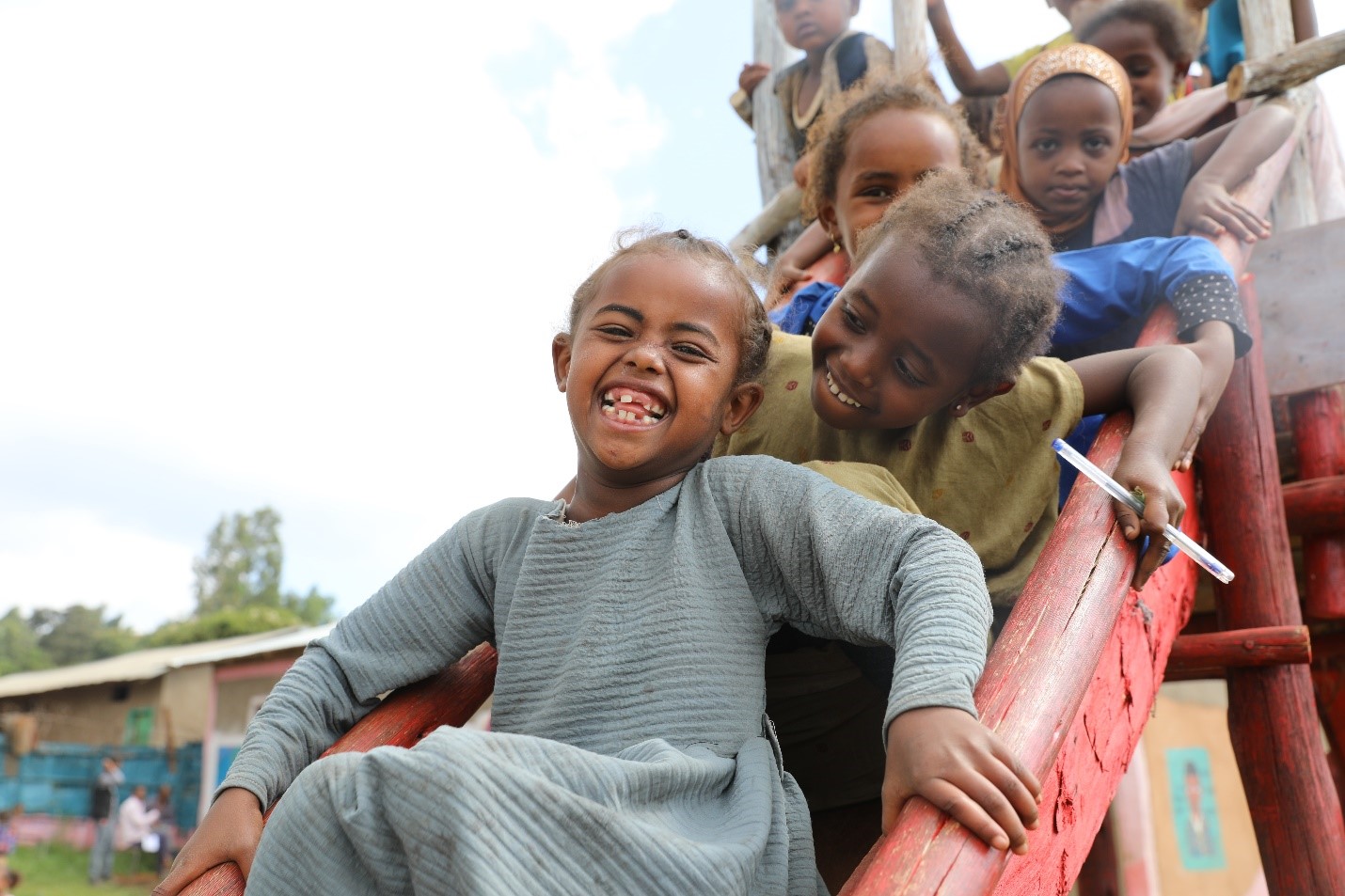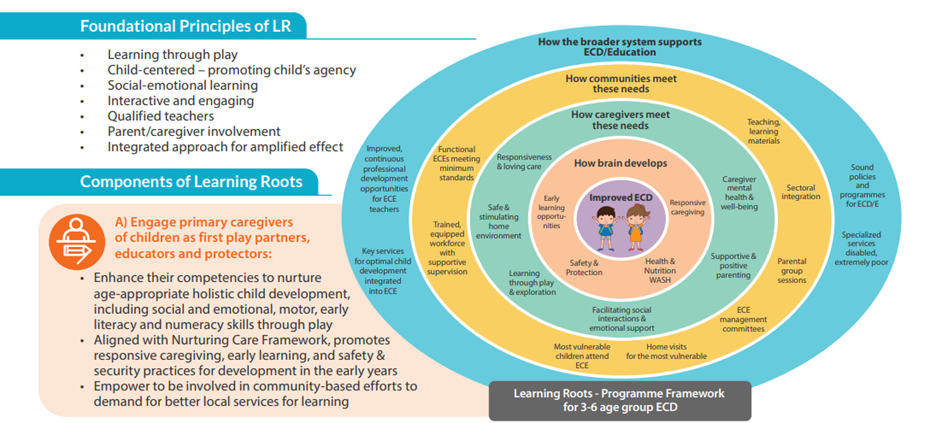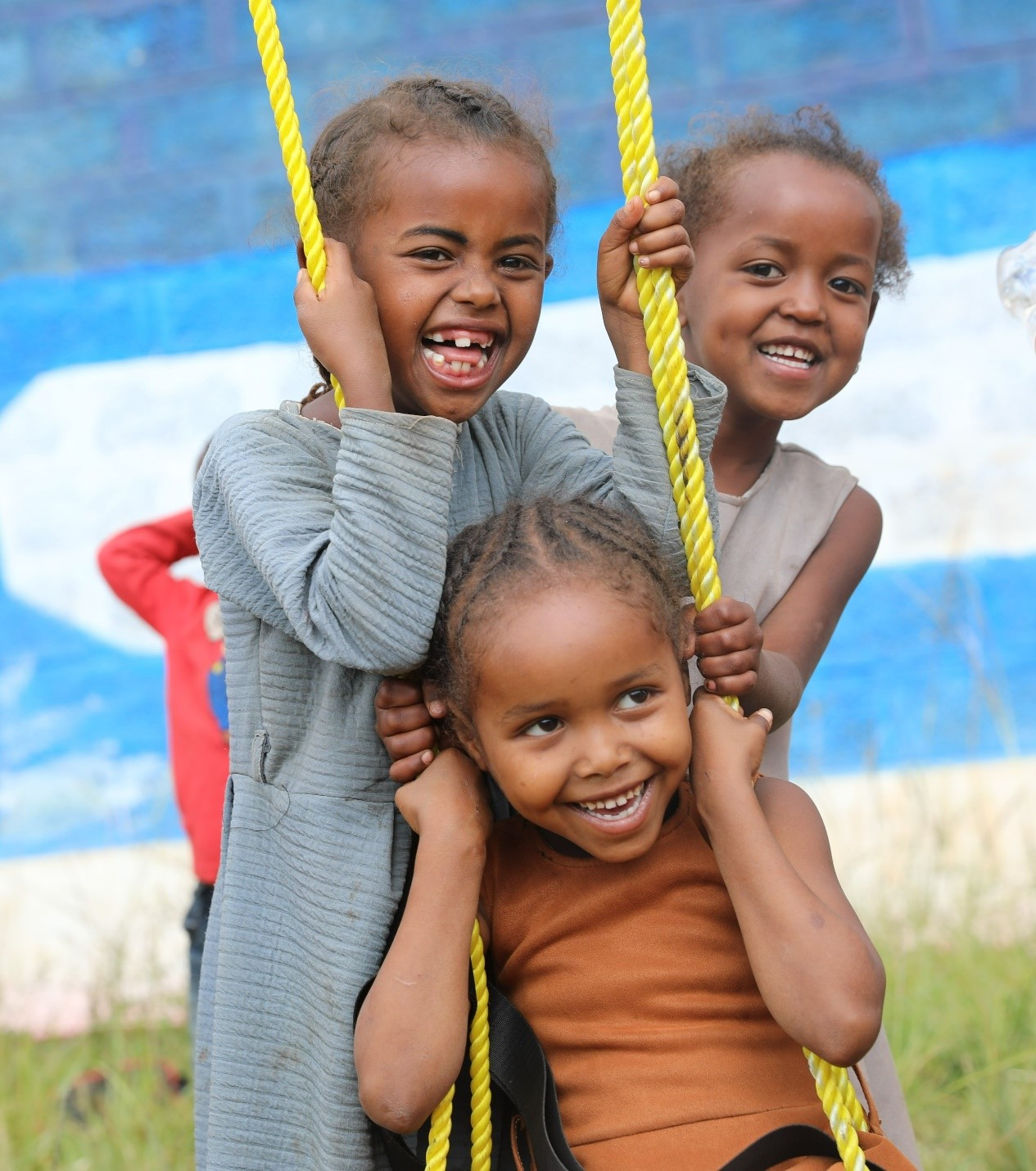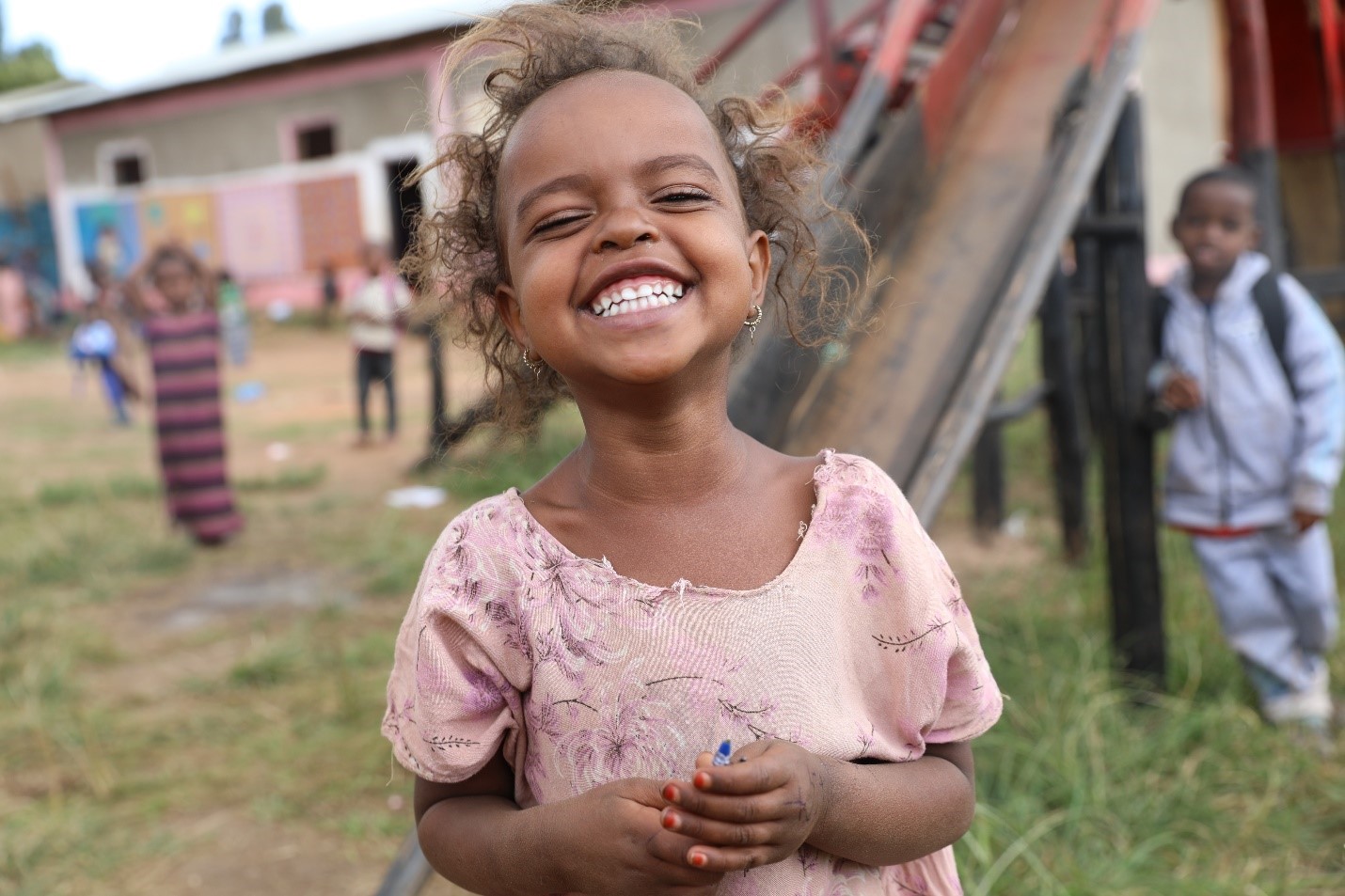By Nancy Del Col, Education Sector Lead and Nimrah Ashraf Baba, Education Intern, World Vision Canada with Samuel Zerihun, Communications Coordinator, WV Ethiopia.
Children’s play is more than simple amusement or a way to burn off natural energy. Play builds young brains, as a growing body of neuroscientific evidence shows. Play is a fundamental component of cognitive development, cultivating critical thinking, problem-solving, creativity, teamwork, and communication skills. Research shows that playful learning experiences are transformative. As natural scientists and explorers, children are propelled by curiosity to experiment and discover. Through play, their brain structures are stimulated, and they continuously adapt to and learn new information in their environments. Play helps children make meaning of their worlds.
“Play is not just an activity; it is a fundamental part of human development,” says Viktorya Sargsyan, World Vision’s senior technical advisor for early childhood development.

“I wanted to ensure that my children, and all the children in our village, had a safe and engaging place to play and learn,” says Muhammed, a father and carpenter who built an ECD playground in the Oromia region, Ethiopia. (Photo credit: World Vision Ethiopia)
When children take charge of their play, they become the architects of their learning journeys, honing skills of focus, planning and task management. Play's iterative nature, where children continually tweak and improve their games, nurtures flexible and innovative thinking. When children play with other children, parents, or teachers, they build social skills and acquire empathy.
Adult caregivers, parents and teachers fulfill a necessary and critical role in play-based learning by providing safe, stable environments and guided play activities in the home, community or school. Play-based learning can be: 1) Child-directed: the joy of child-led free play and exploration fosters independence, creativity, language development and social skills. Feelings of joy increase dopamine levels in a child’s brain, enhancing memory and attention. 2) Adult/teacher-guided: children co-construct their learning with caregivers, teachers and peers and apply it to their lives to make meaningful, personal discoveries. 3) Adult/teacher directed: teachers take a more active role in planning, directing and guiding play activities with intentional learning objectives.
Children benefit in different ways from all three types of play. While structured and guided play leads to the most significant learning and development outcomes, balancing these three types of play in the home, school and community can enhance and accelerate child development across socio-emotional, cognitive, language and literacy, and self-regulation domains.
World Vision has committed to integrating play-based learning into its education programming, starting with the youngest children in its Go Baby Go (GBG) and Learning Roots (LR) models. These two programs for children aged 0 – 6 employ an ecosystem approach to early childhood development, including primary caregivers as children’s first play partners, educators and protectors. Using engaging and interactive play-based learning activities, adult caregivers and teachers are equipped by World Vision with the skills and tools they need to ensure children learn and grow in safe and stimulating environments, and communities are directly involved in providing play and learning spaces for children.

World Visions's Learning Roots approach enables secure, stimulating, play-centric environments that promote learning and development of children ages 0-6.
Joyful Play in Ethiopia
In the small village of Umer Ali in the Oromia region of Ethiopia, the community collaborated with World Vision to build a new Early Childhood Development (ECD) center, a satellite location linked to an existing and established ECD center in a neighbouring district. The community was excited to provide their preschoolers with a nurturing place to learn and develop, preparing them for entry into first grade. However, the new center needed outdoor playground equipment to complement its classroom learning materials.

Free, unstructured and safe play allows children to use imagination and creativity, make independent choices, and develop physical and social skills.(Photo credits: World Vision Ethiopia)
Muhammed, a 40-year-old father, farmer and skilled carpenter, saw an opportunity to bring joy to the village’s young learners, including his son and daughter, who attended the ECD center. He designed and built an outdoor playground, crafting a magnificent slide, merry-go-round, and balance beams from local materials. He also maintains any broken or damaged equipment. "I poured my heart into creating this playground, and it brings me so much joy to see the kids enjoying it every day," says Muhammed.

Free, unstructured and safe play allows children to use imagination and creativity, make independent choices, and develop physical and social skills.(Photo credits: World Vision Ethiopia)
The playground has quickly become an integral and beloved fixture of the ECD center. Children's laughter and excited voices fill the air as they play, a testament to Muhammed's gifts and the powerful difference parents and caregivers can make when they become involved in their children’s learning.
Every day, more than one hundred children come to the Umer Ali ECD center to learn, explore and play, Muhammed’s children among them. Muhammed takes pride in knowing his work has made an impact, providing the village's children with safe spaces to grow and thrive. Firomi, a five-year-old girl, exclaims, "Riding on the merry-go-round and sliding down the slide are my favourite things to do! It's so much fun to play with my friends outside."